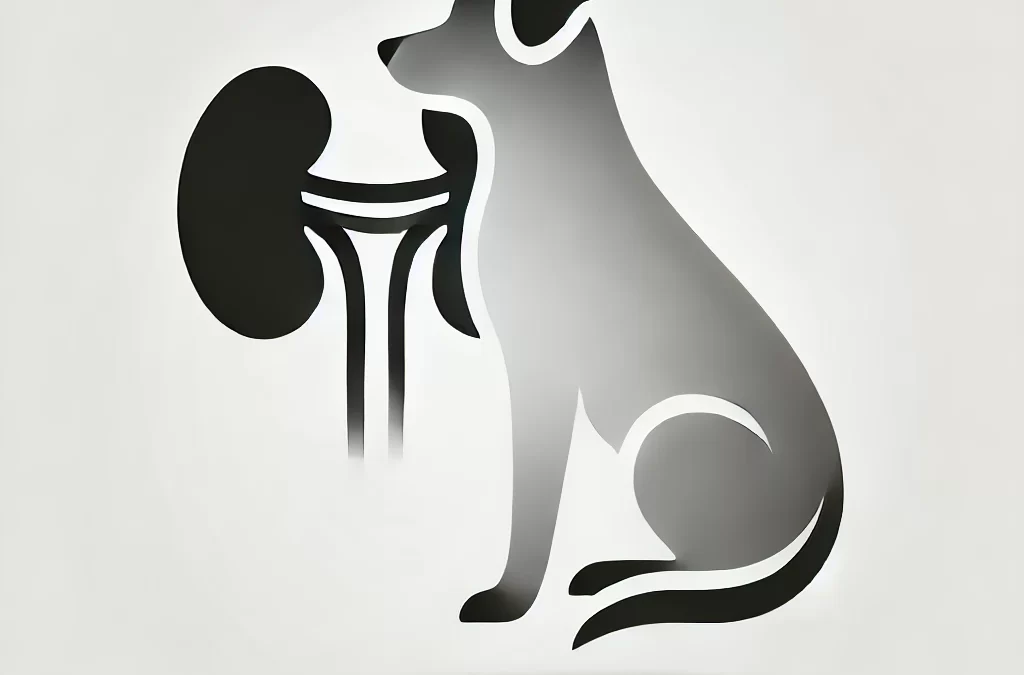Nierkanker bij honden is een relatief zeldzame aandoening, maar de subtiele symptomen kunnen vaak worden aangezien voor andere kwalen, waardoor cruciale behandeling wordt uitgesteld. Dit artikel duikt in de minder bekende signalen van deze stille ziekte, en helpt hondenbezitters om potentiële problemen te identificeren voordat het te laat is.
Een zeldzame maar ernstige aandoening
Nierkanker is goed voor minder dan 1% van alle kankers bij honden, maar de impact ervan op de gezondheid van een hond kan groot zijn. Hoewel oudere honden vaker worden getroffen, is geen enkel ras immuun. In tegenstelling tot kankers met zichtbare gezwellen of duidelijke symptomen, blijft nierkanker vaak verborgen totdat het een vergevorderd stadium bereikt.
De symptomen ontmaskeren
Hier zijn enkele verrassende symptomen van nierkanker die huisdiereigenaren mogelijk over het hoofd zien:
1. Toegenomen dorst en urineren (polydipsie en polyurie)
Een van de eerste tekenen is overmatige dorst en urineren, wat vaak wordt afgedaan als tekenen van veroudering of een nierinfectie. Deze symptomen kunnen echter duiden op de moeite die de nieren hebben om te functioneren vanwege een tumor.
2. Bloed in de urine (hematurie)
Het spotten van rode of roze urine kan alarmerend zijn. Hematurie is een waarschuwingssignaal voor nierproblemen, waaronder nierkanker. De bloeding kan komen en gaan, waardoor het gemakkelijk gemist kan worden tijdens een oppervlakkige observatie.
3. Onverklaarbaar gewichtsverlies
Een hond die gewicht verliest zonder enige verandering in dieet of activiteitsniveaus kan systemische effecten van nierkanker ervaren. De tumor kan de eetlust en de opname van voedingsstoffen verstoren, wat leidt tot geleidelijk gewichtsverlies.
4. Zwelling van de buik
Zwelling of een voelbare massa in de buik is een verder gevorderd symptoom. Eigenaren kunnen merken dat de buik van hun hond steviger aanvoelt of groter lijkt dan normaal.
5. Verminderde energieniveaus
Lethargie is een veelvoorkomend maar niet-specifiek symptoom van veel ziekten, waaronder nierkanker. Honden met deze aandoening kunnen een merkbare afname in activiteit en enthousiasme voor spel vertonen.
6. Braken en spijsverteringsproblemen
Omdat de nieren er niet in slagen om toxines effectief te filteren, kunnen gastro-intestinale symptomen zoals braken, misselijkheid en diarree optreden. Deze symptomen kunnen na verloop van tijd verergeren.
7. Moeilijk ademen
In zeldzame gevallen kan nierkanker uitzaaien naar de longen, wat ademhalingsmoeilijkheden en hoesten veroorzaakt.
Waarom vroege detectie belangrijk is
Vroege diagnose is de sleutel tot het verbeteren van de uitkomsten voor honden met nierkanker. Behandelingen, waaronder een operatie om de aangetaste nier te verwijderen (nefrectomie), chemotherapie of holistische benaderingen, zijn effectiever wanneer de ziekte vroeg wordt ontdekt.
Wat kunnen huisdiereigenaren doen?
1. Regelmatige controles bij de dierenarts
Routinematige gezondheidsonderzoeken kunnen afwijkingen detecteren die anders onopgemerkt zouden blijven. Een grondig lichamelijk onderzoek, gecombineerd met bloed- en urinetests, kan vroege aanwijzingen geven over de gezondheid van de nieren.
2. Ken de norm van uw hond
Het observeren van subtiele veranderingen in het gedrag, de eetlust en de urineergewoonten van uw hond kan levensreddend zijn. Het bijhouden van een gezondheidsdagboek kan helpen om ongebruikelijke symptomen in de loop van de tijd bij te houden.
3. Gebruik diagnostische hulpmiddelen
Als er een vermoeden is van nierkanker, kunnen geavanceerde diagnostische methoden zoals echografie, röntgenfoto's of CT-scans de aanwezigheid van tumoren bevestigen en de behandeling bepalen.
Een hoopvolle toekomst
Hoewel nierkanker een ernstige diagnose is, bieden ontwikkelingen in de diergeneeskunde hoop. Naast conventionele behandelingen onderzoeken sommige hondenbezitters complementaire therapieën, zoals kruidensupplementen of dieetveranderingen, om de algehele gezondheid van hun hond te ondersteunen.
Afsluitende gedachten
Nierkanker bij honden is misschien zeldzaam, maar het begrijpen van de symptomen kan levens redden. Door geïnformeerd en waakzaam te blijven, kunnen huisdiereigenaren ervoor zorgen dat hun harige vrienden gezonder en langer leven. Als u een van deze tekenen opmerkt, wacht dan niet langer: raadpleeg onmiddellijk uw dierenarts. Vroegtijdige actie is de beste verdediging tegen deze stille ziekte.















